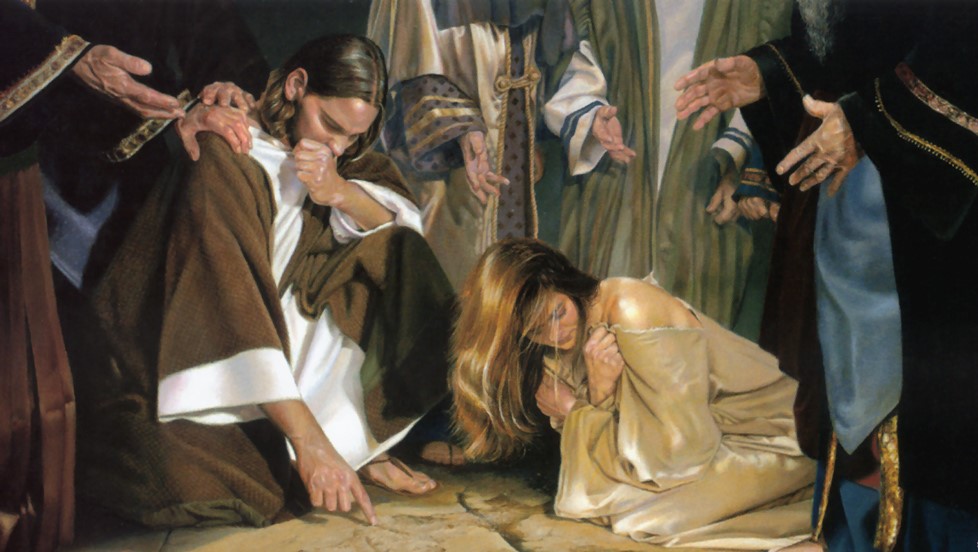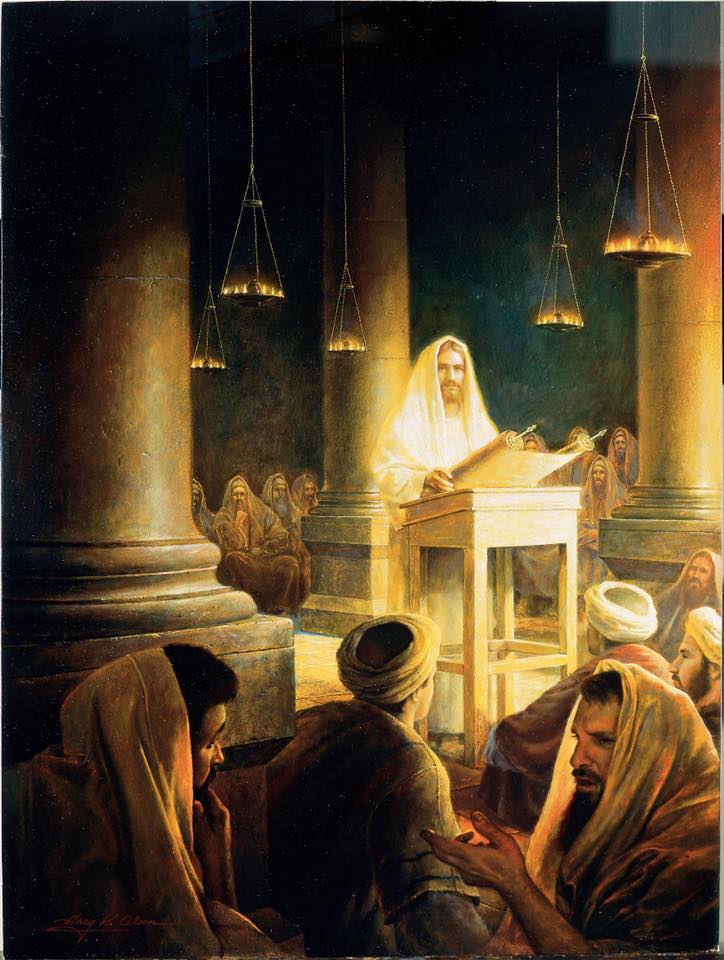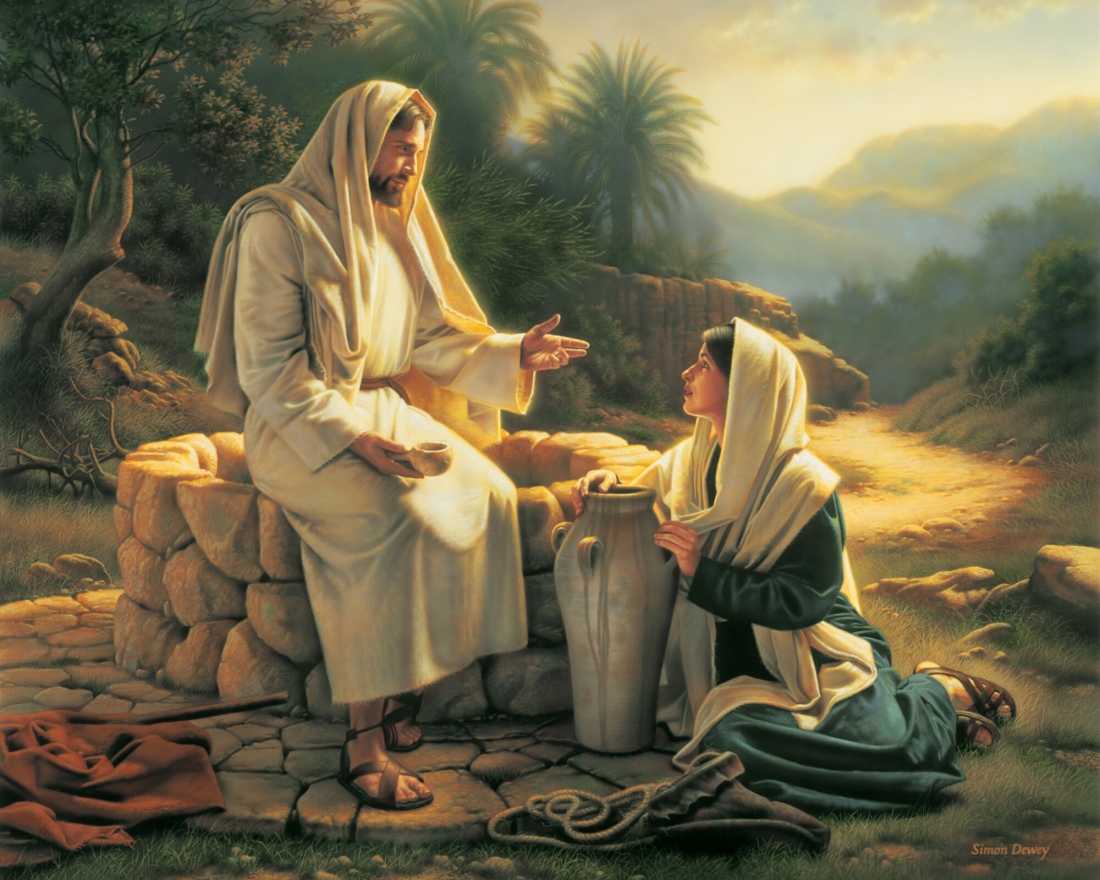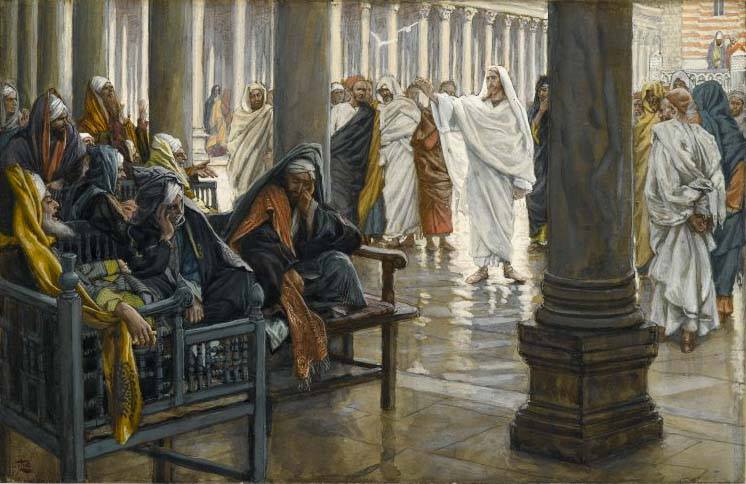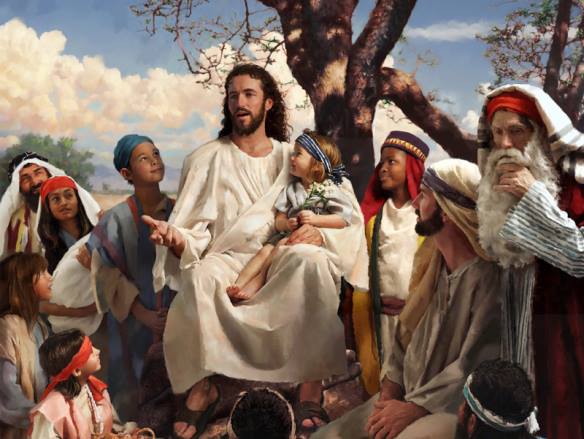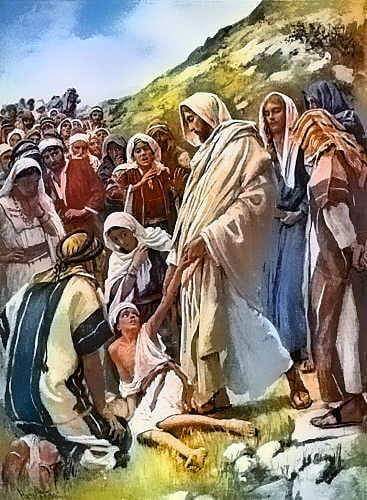MONDAY OF THE 5TH WEEK OF LENT (YEAR A, Violet)
Reading 1 (DANIEL 13:1-9, 15-17, 19-30, 33-62 OR 13:41C-62)
A reading from the Book of the Prophet Daniel
In Babylon there lived a man named Joakim,
who married a very beautiful and God-fearing woman, Susanna,
the daughter of Hilkiah;
her pious parents had trained their daughter
according to the law of Moses.
Joakim was very rich;
he had a garden near his house,
and the Jews had recourse to him often
because he was the most respected of them all.
That year, two elders of the people were appointed judges,
of whom the Lord said, “Wickedness has come out of Babylon:
from the elders who were to govern the people as judges.”
These men, to whom all brought their cases,
frequented the house of Joakim.
When the people left at noon,
Susanna used to enter her husband’s garden for a walk.
When the old men saw her enter every day for her walk,
they began to lust for her.
They suppressed their consciences;
they would not allow their eyes to look to heaven,
and did not keep in mind just judgments.
One day, while they were waiting for the right moment,
she entered the garden as usual, with two maids only.
She decided to bathe, for the weather was warm.
Nobody else was there except the two elders,
who had hidden themselves and were watching her.
“Bring me oil and soap,” she said to the maids,
“and shut the garden doors while I bathe.”
As soon as the maids had left,
the two old men got up and hurried to her.
“Look,” they said, “the garden doors are shut, and no one can see us;
give in to our desire, and lie with us.
If you refuse, we will testify against you
that you dismissed your maids because a young man was here with you.”
“I am completely trapped,” Susanna groaned.
“If I yield, it will be my death;
if I refuse, I cannot escape your power.
Yet it is better for me to fall into your power without guilt
than to sin before the Lord.”
Then Susanna shrieked, and the old men also shouted at her,
as one of them ran to open the garden doors.
When the people in the house heard the cries from the garden,
they rushed in by the side gate to see what had happened to her.
At the accusations by the old men,
the servants felt very much ashamed,
for never had any such thing been said about Susanna.
When the people came to her husband Joakim the next day,
the two wicked elders also came,
fully determined to put Susanna to death.
Before all the people they ordered:
“Send for Susanna, the daughter of Hilkiah,
the wife of Joakim.”
When she was sent for,
she came with her parents, children and all her relatives.
All her relatives and the onlookers were weeping.
In the midst of the people the two elders rose up
and laid their hands on her head.
Through tears she looked up to heaven,
for she trusted in the Lord wholeheartedly.
The elders made this accusation:
“As we were walking in the garden alone,
this woman entered with two girls
and shut the doors of the garden, dismissing the girls.
A young man, who was hidden there, came and lay with her.
When we, in a corner of the garden, saw this crime,
we ran toward them.
We saw them lying together,
but the man we could not hold, because he was stronger than we;
he opened the doors and ran off.
Then we seized her and asked who the young man was,
but she refused to tell us.
We testify to this.”
The assembly believed them,
since they were elders and judges of the people,
and they condemned her to death.
But Susanna cried aloud:
“O eternal God, you know what is hidden
and are aware of all things before they come to be:
you know that they have testified falsely against me.
Here I am about to die,
though I have done none of the things
with which these wicked men have charged me.”
The Lord heard her prayer.
As she was being led to execution,
God stirred up the holy spirit of a young boy named Daniel,
and he cried aloud:
“I will have no part in the death of this woman.”
All the people turned and asked him, “What is this you are saying?”
He stood in their midst and continued,
“Are you such fools, O children of Israel!
To condemn a woman of Israel without examination
and without clear evidence?
Return to court, for they have testified falsely against her.”
Then all the people returned in haste.
To Daniel the elders said,
“Come, sit with us and inform us,
since God has given you the prestige of old age.”
But he replied,
“Separate these two far from each other that I may examine them.”
After they were separated one from the other,
he called one of them and said:
“How you have grown evil with age!
Now have your past sins come to term:
passing unjust sentences, condemning the innocent,
and freeing the guilty, although the Lord says,
‘The innocent and the just you shall not put to death.’
Now, then, if you were a witness,
tell me under what tree you saw them together.”
“Under a mastic tree,” he answered.
Daniel replied, “Your fine lie has cost you your head,
for the angel of God shall receive the sentence from him
and split you in two.”
Putting him to one side, he ordered the other one to be brought.
Daniel said to him,
“Offspring of Canaan, not of Judah, beauty has seduced you,
lust has subverted your conscience.
This is how you acted with the daughters of Israel,
and in their fear they yielded to you;
but a daughter of Judah did not tolerate your wickedness.
Now, then, tell me under what tree you surprised them together.”
“Under an oak,” he said.
Daniel replied, “Your fine lie has cost you also your head,
for the angel of God waits with a sword to cut you in two
so as to make an end of you both.”
The whole assembly cried aloud,
blessing God who saves those who hope in him.
They rose up against the two elders,
for by their own words Daniel had convicted them of perjury.
According to the law of Moses,
they inflicted on them
the penalty they had plotted to impose on their neighbor:
they put them to death.
Thus was innocent blood spared that day.
– The word of the Lord.
or
The assembly condemned Susanna to death.
But Susanna cried aloud:
“O eternal God, you know what is hidden
and are aware of all things before they come to be:
you know that they have testified falsely against me.
Here I am about to die,
though I have done none of the things
with which these wicked men have charged me.”
The Lord heard her prayer.
As she was being led to execution,
God stirred up the holy spirit of a young boy named Daniel,
and he cried aloud:
“I will have no part in the death of this woman.”
All the people turned and asked him,
“What is this you are saying?”
He stood in their midst and continued,
“Are you such fools, O children of Israel!
To condemn a woman of Israel without examination
and without clear evidence?
Return to court, for they have testified falsely against her.”
Then all the people returned in haste.
To Daniel the elders said,
“Come, sit with us and inform us,
since God has given you the prestige of old age.”
But he replied,
“Separate these two far from each other that I may examine them.”
After they were separated one from the other,
he called one of them and said:
“How you have grown evil with age!
Now have your past sins come to term:
passing unjust sentences, condemning the innocent,
and freeing the guilty, although the Lord says,
‘The innocent and the just you shall not put to death.’
Now, then, if you were a witness,
tell me under what tree you saw them together.”
“Under a mastic tree,” he answered.
Daniel replied, “Your fine lie has cost you your head,
for the angel of God shall receive the sentence from him
and split you in two.”
Putting him to one side, he ordered the other one to be brought.
Daniel said to him, “Offspring of Canaan, not of Judah,
beauty has seduced you, lust has subverted your conscience.
This is how you acted with the daughters of Israel,
and in their fear they yielded to you;
but a daughter of Judah did not tolerate your wickedness.
Now, then, tell me under what tree you surprised them together.”
“Under an oak,” he said.
Daniel replied, “Your fine lie has cost you also your head,”
for the angel of God waits with a sword to cut you in two
so as to make an end of you both.”
The whole assembly cried aloud,
blessing God who saves those who hope in him.
They rose up against the two elders,
for by their own words Daniel had convicted them of perjury.
According to the law of Moses,
they inflicted on them
the penalty they had plotted to impose on their neighbor:
they put them to death.
Thus was innocent blood spared that day.
– The word of the Lord.
Responsorial Psalm (PSALM 23:1-3A, 3B-4, 5, 6)
R. (4ab) Even though I walk in the dark valley I fear no evil; for you are at my side.
The LORD is my shepherd; I shall not want.
In verdant pastures he gives me repose;
Beside restful waters he leads me;
he refreshes my soul.
R. Even though I walk in the dark valley I fear no evil; for you are at my side.
He guides me in right paths
for his name’s sake.
Even though I walk in the dark valley
I fear no evil; for you are at my side
With your rod and your staff
that give me courage.
R. Even though I walk in the dark valley I fear no evil; for you are at my side.
You spread the table before me
in the sight of my foes;
You anoint my head with oil;
my cup overflows.
R. Even though I walk in the dark valley I fear no evil; for you are at my side.
Only goodness and kindness follow me
all the days of my life;
And I shall dwell in the house of the LORD
for years to come.
R. Even though I walk in the dark valley I fear no evil; for you are at my side.
Verse Before The Gospel (EZEKIEL 33:11)
(Glory and praise to you, Lord Jesus Christ.)
I take no pleasure in the death of the wicked man, says the Lord,
but rather in his conversion, that he may live.
(Glory and praise to you, Lord Jesus Christ.)
Gospel (JOHN 8:1-11)
A reading from the Holy Gospel according to John
Jesus went to the Mount of Olives.
But early in the morning he arrived again in the temple area,
and all the people started coming to him,
and he sat down and taught them.
Then the scribes and the Pharisees brought a woman
who had been caught in adultery
and made her stand in the middle.
They said to him,
“Teacher, this woman was caught
in the very act of committing adultery.
Now in the law, Moses commanded us to stone such women.
So what do you say?”
They said this to test him,
so that they could have some charge to bring against him.
Jesus bent down and began to write on the ground with his finger.
But when they continued asking him,
he straightened up and said to them,
“Let the one among you who is without sin
be the first to throw a stone at her.”
Again he bent down and wrote on the ground.
And in response, they went away one by one,
beginning with the elders.
So he was left alone with the woman before him.
Then Jesus straightened up and said to her,
“Woman, where are they?
Has no one condemned you?”
She replied, “No one, sir.”
Then Jesus said, “Neither do I condemn you.
Go, and from now on do not sin any more.”
– The Gospel of the Lord.
Reflection: The two Readings present to us about Mercy and Justice. Are the two values opposed from one another? The First Reading is a very long passage that speaks about the false accusation brought by the two elders against Susanna, who really had the intention of lusting over her beautiful body. That is why they accused her of adultery, when in fact they tried to rape her while she was taking a bath at the garden of her husband Joakim. But the Lord heard Susanna’s prayer and aware of her innocence, endowed the Spirit on the Prophet Daniel who exposed the perjury committed by the two elders and their plot against this woman. At that point, the assembly condemned them, and Susanna has been found not worthy of the charge brought about by her. Here the passage views mercy and justice to the innocent, while the guilty are punished accordingly. Even though these two elders are acknowledge has having religious authority, still their actions to lust over Susanna proves them to be hypocritical, and worse, to falsely accuse this woman of adultery. The Gospel presents to us Jesus’ encounter with a woman caught in committing adultery. When the Jewish leaders brought her to him, they also mentioned that the Law of Moses enforces such to be stoned to death. Yet Christ’s conscience is much higher above their expected answer. If he allows the death sentence, then he is accounted for murder that will lead to Roman imprisonment, and it contradicts his teaching of love. But if he does not allow the death sentence, then he is disregarding to Mosaic Law. However Christ’s conscience overcomes because he is aware of the trap they have ensnared for him. Bible scholars would say that what he wrote on the ground could possibly mean the sins of the people who wanted to stone the adulterous woman. No wonder he told them that anyone who has not committed sin may first throw at her, which was why they left one by one, beginning with the elders. But the story did not end there, for Jesus commissioned the woman to go along with a new way of life and never to commit sin again.So how do we understand the Context of Mercy and Justice? Pope Francis says: “Mercy is not opposed to justice but rather expresses God’s way of reaching out to the sinner, offering him a new chance to look at himself, convert, and believe” (MV 21). Simply it means that there is no opposition between the two. They are interconnected, wherein mercy applies to justice on what needs to be corrected according to the divine will, and justice applies to mercy on what is right and worthy according to the divine will as well. We have to understand that when we commit a sin, God will always reach out to us, so that we may return to him with penance and conversion. However if we keep on living a sinful and vicious life, then what will happen to us when our death has come? Of course that is eternity, but down into the flames, and we don’t want that to happen. Holy Week is upon us, and the greatest act of mercy and justice is when Christ suffered and died to save us all from sin that we may have the free will to do good and avoid evil, and to make us adopted children of God by our faith. Even if we try to exclude God in our lives, test or swear to him when we experience down moments, rely too much on what this world offers, and think we are better than others, it is he who will remind us especially during this Lenten Season that we should return to him, change our ways, and live devout and sincere lives to serve him and others through love. For if we came from God, then that is where we should be.

